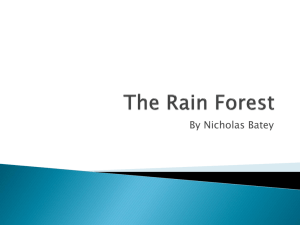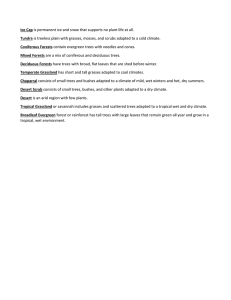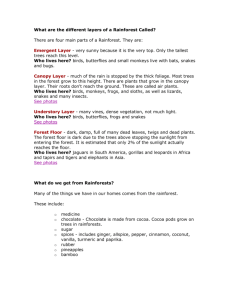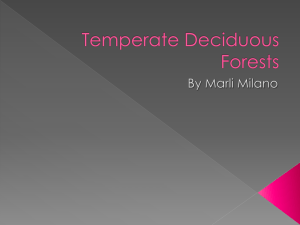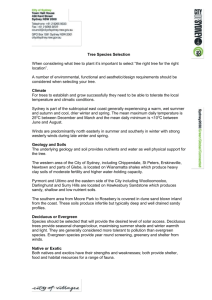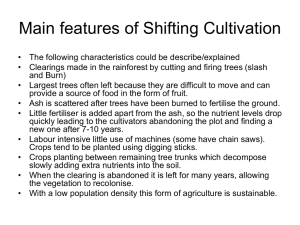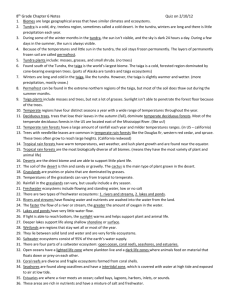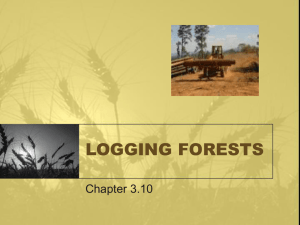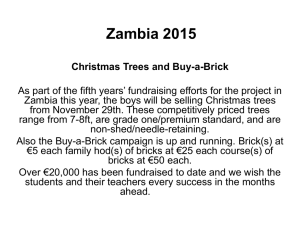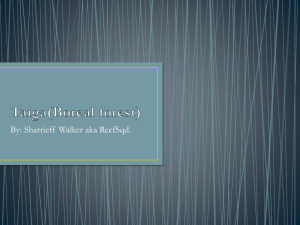Types of Forests
advertisement
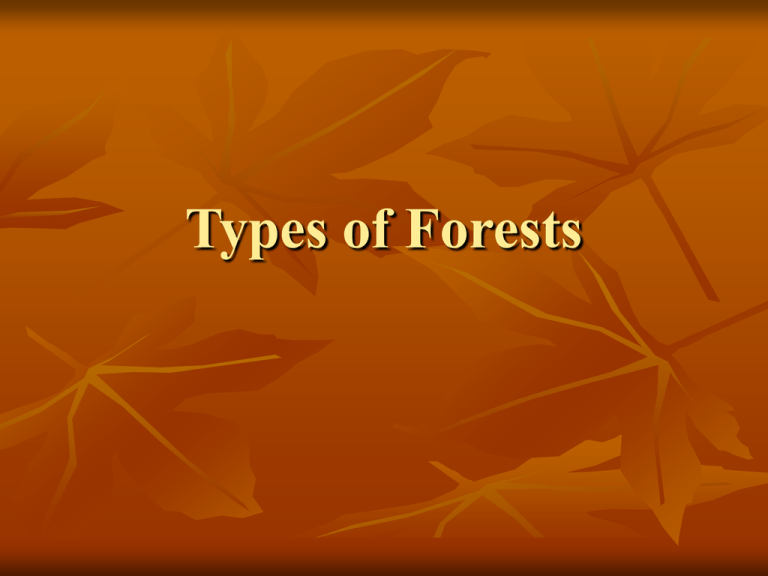
Types of Forests Tropical (Rainforests) Canopy is often closed (little light reaches below) A canopy opening happens when a tree falls Many trees are covered with epiphytes Plants competing for the light fill the space Epiphyte- plants that grow on other plants instead of in the soil Rainfall determines the vegetation growth rate Rainforests of the Earth Rainforest Mammals Rainforest Birds Rainforest Reptiles and others Coniferous Forests Has cone bearing trees (pine, spruce, fir, and hemlock) Also called temperate rain forests Warm, moist air from the pacific ocean supports these unique communities They are usually dominated by one or a few species of trees The Taiga is the largest terrestrial biome on earth Receives heavy snowfall but the cone shape of the trees prevents branches from breaking Currently, they are being heavily logged. Taiga The Northern Coniferous Forest stretches from North America to Eurasia. The southern border of the artic tundra is called the TAIGA. Taiga Pictures Temperate Deciduous Dense stands of trees Occur where there is enough moisture to support growth of large trees More open than rain forests, but not as tall Has distinct vertical layers Mammals in these forests hibernate and some migrate to warmer climates Deciduous- plants that drop their leaves before winter This is done because temperatures are too low for photosynthesis Deciduous Trees and Winter Dormancy Deciduous trees begin to lose their leaves when temperatures begin to get colder and the days become shorter Circadian Rhythm- a 24 hour cycle that organisms internally live by What causes leaves to fall? This happens in 3 steps: 1. 2. Cells die at the base of each leaf because of forming cork that cuts off the water and nutrients for the leaf Green chlorophyll turns to other types of chlorophyll that can use sunlight better – – – 3. Xanthophylls: yellow light Carotenoids: yellow and orange light Anthocyanins: scarlet and purple light Leaves fall to the ground – – This prevents trees from being damaged because of freezing temperatures and strong winds The tree remains dormant in the winter until longer days and warmer weather cause new leaves to grow
